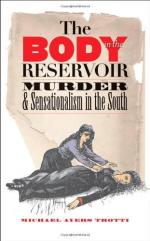|
This section contains 4,507 words (approx. 16 pages at 300 words per page) |

|
"Sensationalism," the doctrine that all knowledge is derived from sensations, takes several closely related forms. As a psychological theory it stresses the origins of knowledge and the processes by which it is acquired; it seeks to reduce all mental contents to unitary sensations and has close connections with associationism. It is sometimes, as by its acute but sympathetic critic James Ward, called presentationism. As an epistemological theory it tends toward the view that statements purporting to describe the world are analyzable into statements concerning the relations between sensations and that this analysis elucidates the meanings of the original statements. It is sometimes regarded as a form of empiricism and adopted with antimetaphysical intentions.
Sensations are usually regarded as occurrences in us, either caused by external objects (Epicurus and John Locke) or not meaningfully attributable to external causes (James Mill and Étienne Bonnot de Condillac). By some they are...
|
This section contains 4,507 words (approx. 16 pages at 300 words per page) |

|


